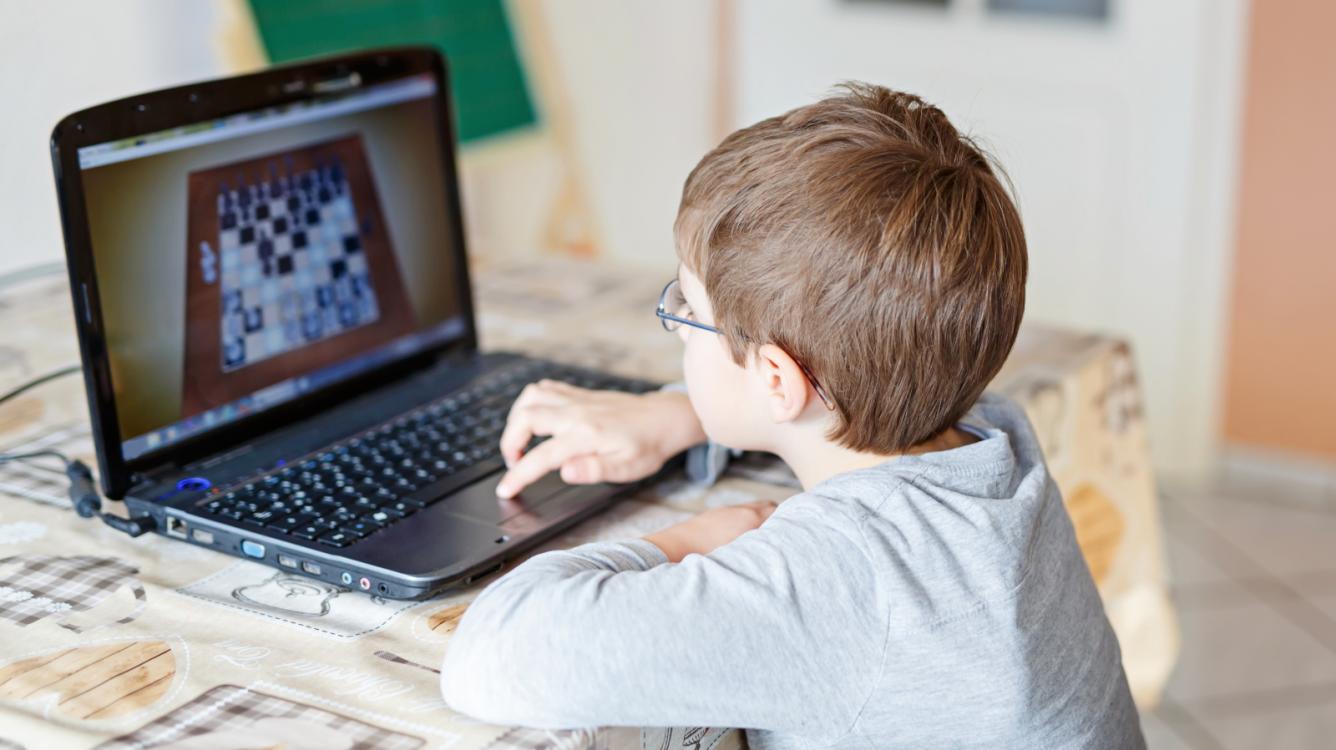
Deterring Scholastic Chess Cheating
I kept staring at my task list, as I was desperate to come up with a good reason to skip one of them. Some tasks are just so uncomfortable that we just do not want to even go near them. I had to make a simple phone call to tell a parent that their son was cheating in a chess tournament.
Over the past fifteen years, I had had two such conversations, but in the last six weeks, I have had six! Every week, I must get on that phone and tell at least one parent that their child is involved in a cheating incident. The thing that hit me the most was that it was usually one of those students I really liked. I never thought they would do such a thing.
- The Dreaded Phone Call
- Chess.com's Anti-Cheating Measures
- Observing Students Cheating
- Paranoia About Cheating
- Cheat Prevention
The Dreaded Phone Call
We had three players who we thought were cheating in our first online tournament since COVID-19, and we reported all three of them to Chess.com. Two out of the three accounts were banned in the next couple of days.
I made the hesitant phone call to the first parent and explained that Chess.com had banned this student’s username, which means that the player was certainly cheating. The parent was understandably in shock! I explained why we thought her son was cheating and that this was confirmed when Chess.com banned his account.

It was important for me to let the parent know that I was conveying a fact, not an opinion. This was not a misjudgment, this was not a glitch in the system, this was the plain and simple truth. In my opinion, this is the biggest hurdle for any parent, and I think it is natural. Unless you are very familiar with the process, you will certainly not be ready to believe someone you trust is doing something wrong and take a stand against it.
It was important for me to let the parent know that I was conveying a fact, not an opinion.
— GM Magesh Chandran Panchanathan
This parent was nice and understanding, she was thankful that I called and brought up this issue to her and she was going to figure out the facts with her son. I was relieved to hear that, as this is not the most common response from parents. I have heard so many bizarre arguments like, "My son is a genius and does high school math," or "My son is studying chess for 26 hours a day, so he may have superpowers!" Denial is a natural thing, and, in some sense, a necessary part of the fact-checking process, but it just goes too far at times.
Chess.com's Anti-Cheating Measures
I was not aware of most of the things that went behind the scenes in Chess.com’s anti-cheating measures. More than a year ago, IM Daniel Rensch first explained some details about cheating issues and how Chess.com deals with it. I was surprised to hear that even titled players and grandmasters were caught cheating on Chess.com. I wondered how Chess.com could be so sure that a grandmaster had cheated?
I was not ready to believe this right away and it took me a while and some more reflection to eventually trust this process. This article gives some additional clarity: the fair play and cheat-detection team at Chess.com are experts, and they are putting in a considerable amount of time and resources in catching people who cheat. It is not that they are immune to making a mistake; it is just that they have a much better chance of getting this right.
We live in times where facts cannot be separated from fiction and every Tom, Dick, and Harry is an expert in anything that they can find on Wikipedia. At a time like this, it is even more important to emphasize the ideas of "beyond reasonable doubt" when it comes to acting against someone.
We live in times where facts cannot be separated from fiction and every Tom, Dick, and Harry is an expert in anything that they can find on Wikipedia.
To ban someone’s Chess.com account is not the same as convicting someone for a crime, but the process is still the same. So, when Chess.com banned two players and did not ban the third player from our tournament, who I was certain was cheating, I knew they did not have the necessary information to act. Chess.com did not know my student. They did not know his over-the-board rating, or what he could and could not calculate during a game—but I knew all of these things!
Observing Students Cheating
Noticing a student when they are cheating is similar to finding tactics in a chess position. When we do enough tactics, you get the sense that something is wrong in a position because your intuition tells you that. You do not immediately conclude that there is a tactic; you start looking for one and start calculating to eventually figure it out.
The same thing happens when I see a student give me a move during class or play a certain move during a game. It could be the time he/she took, it could be the posture, it could be the casual feeling, it could be any one of those things, but the overall intuition will usually arrive right away. When a student is doing something wrong, you can sense it. Your brain is used to a standard response and reaction, and when you get a different one, you will notice!
When a student is doing something wrong, you can sense it.
I realized that if Chess.com banned an account, the player most likely cheated, but if Chess.com did not ban an account, that did not mean that the player was clean. As I understood that part of the process, my tone towards cheating shifted from caution to certainty. My intuition combined with Chess.com’s data and analysis helped me come up with a proper verdict.
Paranoia About Cheating
As I started coming down hard on players who I thought were cheating, I realized that If cheating is a problem, so is the paranoia among people about cheating. Instead of looking for facts about cheating, people have started looking for abnormal results as a guideline to raise the cheating alarm. I was once accused of cheating because I had a very bad tournament. The person who accused me was so thorough in collecting the data that they had found that I had never played such a bad tournament in the past ten years!
I took that as a compliment because the person who accused me clearly did not think I could play that poorly. The key is to find a good balance in this process, and I am convinced that Chess.com is doing its due diligence before pulling the trigger. Given that I had so many questions about this process, I think it is very natural for a parent to question it thoroughly before falling in line. The problem, however, is that parents sometimes do not follow the lead in these questions to get more information. Instead, they just fill in the gaps with theories of their child’s innocence.

Cheating Prevention
Finding methods to catch someone who is cheating is great, but it might be even better if we could prevent them from cheating in the first place. As a precautionary measure, I started conveying the message to my students and all other players out there that there is a very high chance that you will be caught if you cheat. This message is not clear out there; it is particularly not clear to young students who are sitting in their room alone and struggling with their chess game and suddenly see the possibility to cheat the system without any consequences. At a moment like that, fear may be a necessary feeling to keep them on the right track.
Currently, I feel that these players have no fear because they do not understand that Chess.com or their coach can easily catch them, and they will be in trouble. Imagine you walk into a classroom to take a test, and there is no proctor, and there are no other students. You have the test paper on the desk and right next to it is the book with the answers. As far as you can tell, no one is watching you, but you do know that you are not supposed to use the book. What would you do? This might be a nice study for a fully grown adult, but if we put a young kid through this same test, I feel certain that we would mostly see unpleasant results.
A postdoc from the University of Virginia, Caroline Kelsey, conducted a study about the effects on humans of being watched. Basically, they put a picture of a pair of eyes in front of a donation box in a children’s’ museum to see if it would increase the donations, and guess what, it did! I would encourage readers to check out more details on this study, but the point I am trying to make is that a combination of fear and social acceptance can keep us on our best behavior. When one student cheats, the problem is individualistic, but when more and more students start doing this, it feels like the problem might be something else.

We may be creating an environment that is naturally tempting young chess players to take the immoral path. There is no easy solution to such problems. My feeling is that when a player sits in front of their computer to play a game of chess, the more informed they are about the vetting process, the less likely they are to cheat. Moreover, if they feel like they are monitored, and there will be a social cost to their actions, they will behave better.
Or, you can always take the Indian parenting route and just break their knuckles once, and they will never ever think of doing it again! Scratch that idea. You may end up in jail if you do that 😊



